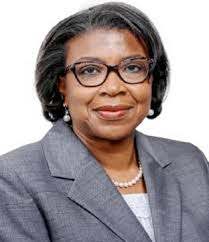FG, states debts near N107tn, naira fall raises loans

Nigeria’s total debt (Federal Government and states’ loans) may hit at least N107.38tn soon following the approval of fresh borrowings for the Federal Government and new securitisation of the Central Bank of Nigeria’s N7.3tn Ways and Means advances.
This is as the Senate, as of December 2023, approved President Bola Tinubu’s request to borrow $7.8bn and €100m as part of the Federal Government’s 2022-2024 borrowing plan. According to Tinubu, the Federal Executive Council under former President Muhammadu Buhari approved the loan facility on May 15, 2023, to finance infrastructure, health, education, agriculture, insecurity, and other sectors.
While asking for the approval, he the foreign loan was necessary to bridge the financial gap and return normalcy to economic activities in the country.
In a letter to the senate in November 2023, the president said, “The senate is invited to note that following the removal of fuel subsidy and its impact on the economy in the country, African Development Bank and the World Bank Group have indicated interest to assist the country in mitigating the economic shores and recent reforms with a sum of $1bn and $2bn respectively.
“In addition to the Federal Executive Council approved 2022-2024 external borrowing plan. Consequently, the required approval is 7,864,508,559 dollars and in terms of euros, 1000 million euros.
“I would like to underscore the fact that the projects and programmes borrowing plans were selected based on positive technical economic evaluations as well as the expected contribution to the social economic development of the country, including employment generation, skills acquisitions, supporting the emergence of more enterprenuers, poverty reduction, and food security to improve the livelihood of an average Nigerian.”
He added, “Given the nature of these facilities and the need to consolidate the country to normalcy, it has become exigent to request the senate consideration and approval of the 2022- 2024 external borrowing plans to enable the government to deliver its responsibilities to Nigerians through expeditious disbursement and efficient projects implementation.”
He said to Bloomberg recently, “We’re hoping to get $1bn or $1.5bn from the World Bank for budgetary support.”
He also hinted that the country might issue a Eurobond in late 2024. He noted, “It is a matter of discussion at the moment, but we think we will get the support because we are continuing with our reforms.”
In October 2023, the Federal Government disclosed that it secured a budget support loan worth $1.5bn from the World Bank and another worth $80m from the African Development Bank.
Edun stated that the government would receive the $1.5bn before the end of 2023, provided it fulfilled its end of the deal.
He said, “The total is $1.5bn. The world today has one of the highest interest rates as the developed world looks to fight inflation. They do it by restricting money, and keeping interest rates high so that you can get inflation down.
“That means that interest rates for everybody else become not just high but very painful, if not unaffordable within that context.”
Edun has been quite vocal against loans, stating that to stabilise the economy the country would need to rely less on borrowing.
During the 2024 Budget presentation in 2023, he said, “The breakdown of different elements shows the direction of this administration in order to stabilise the Nigerian economy for rapid inclusive growth. There is going to be less reliance on borrowing.
“The budget deficit is being brought down to about from 6.1 percent to 3.8 percent of GDP. That is a huge change in direction from unlimited borrowing to focusing on revenue and expenditure management. There will be value for money on expenditure and increased revenue. The key target is to increase tax to GDP ratio from under 10 percent to 18 percent in a couple of years. That target, a hugely ambitious one is what we need to meet to reduce reliance on borrowings.”
Before this, Edun, while unveiling an eight-point agenda for the economy, said, “The government is not in a position to borrow if you consider 90 percent debt service to revenue, and behind that, a rising debt to GDP ratio. If you look at the last budget, you will see a borrowing requirement built into it and appropriated by the National Assembly. And that is ongoing.”
Recently, the Director-General of the Debt Management Office, Patience Oniha, noted high inflation rates have impacted how the country can enter the foreign market.
Speaking on the sidelines of the discussions for the establishment of the African Debt Managers Initiative Network spearheaded by the African Development Institute of the African Development Bank, she said, “There is still uncertainty around the world from the Russia-Ukraine war. So foreign investors are a bit more cautious.
“Let’s use the word, risk-averse and they are investing in those securities that are triple A or double A rating that are offering them high rates, four percent, five percent.”
The country’s rising debt profile has led to an increase in the cost of debt servicing over the years. The World Bank recently projected that debt servicing may gulp 123.4 percent of the Federal Government’s revenue in 2023. Copied from the Punch




